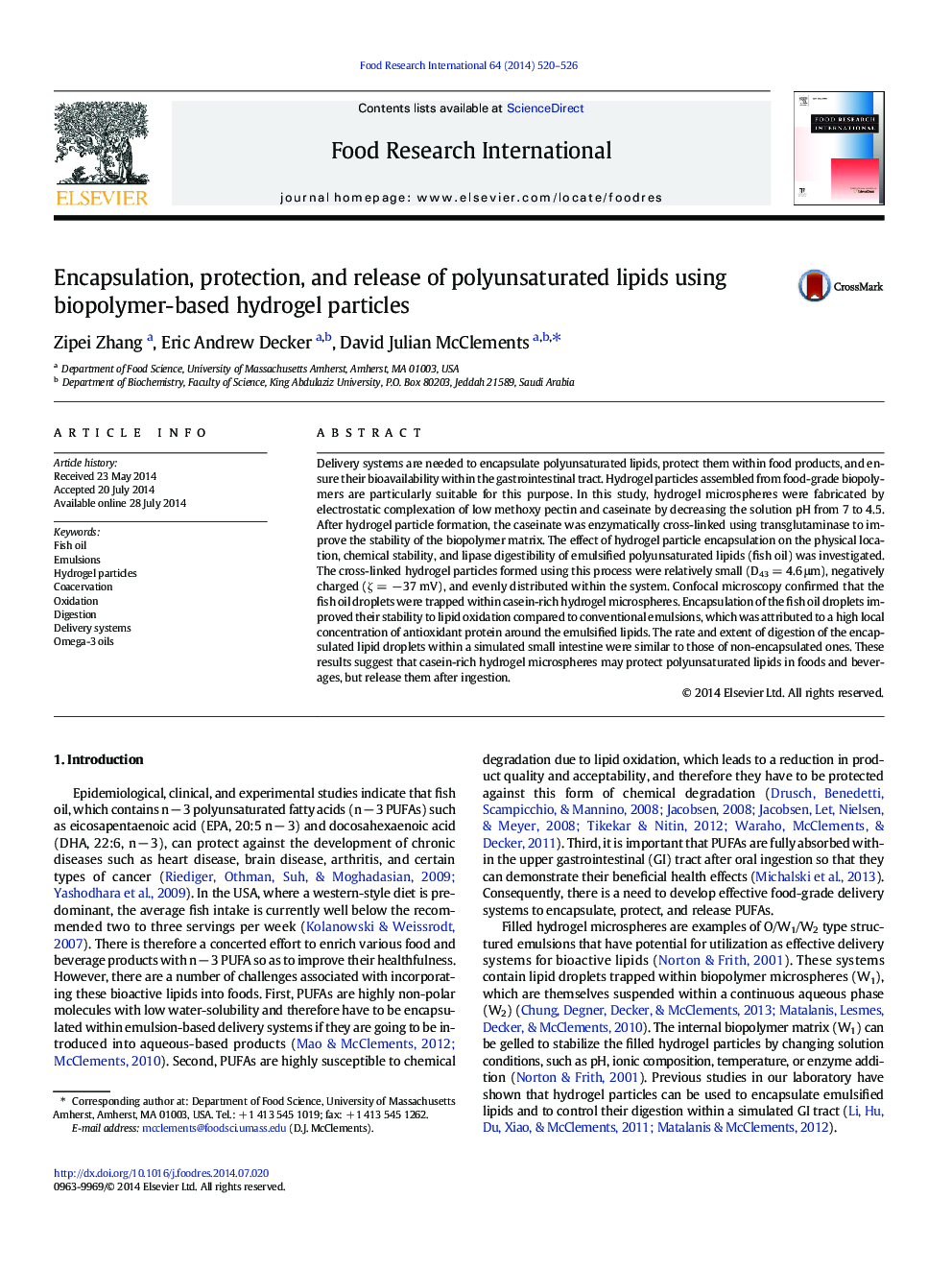| کد مقاله | کد نشریه | سال انتشار | مقاله انگلیسی | نسخه تمام متن |
|---|---|---|---|---|
| 6396683 | 1628481 | 2014 | 7 صفحه PDF | دانلود رایگان |
- Filled hydrogel microspheres were fabricated to encapsulate fish oil.
- The microspheres were able to protect fish oil from oxidation during storage.
- Encapsulated fish oil was easily digested by lipase in an in vitro digestion model.
- Filled hydrogel microspheres may be useful to encapsulating PUFAs.
Delivery systems are needed to encapsulate polyunsaturated lipids, protect them within food products, and ensure their bioavailability within the gastrointestinal tract. Hydrogel particles assembled from food-grade biopolymers are particularly suitable for this purpose. In this study, hydrogel microspheres were fabricated by electrostatic complexation of low methoxy pectin and caseinate by decreasing the solution pH from 7 to 4.5. After hydrogel particle formation, the caseinate was enzymatically cross-linked using transglutaminase to improve the stability of the biopolymer matrix. The effect of hydrogel particle encapsulation on the physical location, chemical stability, and lipase digestibility of emulsified polyunsaturated lipids (fish oil) was investigated. The cross-linked hydrogel particles formed using this process were relatively small (D43 = 4.6 μm), negatively charged (ζ = â 37 mV), and evenly distributed within the system. Confocal microscopy confirmed that the fish oil droplets were trapped within casein-rich hydrogel microspheres. Encapsulation of the fish oil droplets improved their stability to lipid oxidation compared to conventional emulsions, which was attributed to a high local concentration of antioxidant protein around the emulsified lipids. The rate and extent of digestion of the encapsulated lipid droplets within a simulated small intestine were similar to those of non-encapsulated ones. These results suggest that casein-rich hydrogel microspheres may protect polyunsaturated lipids in foods and beverages, but release them after ingestion.
Journal: Food Research International - Volume 64, October 2014, Pages 520-526
